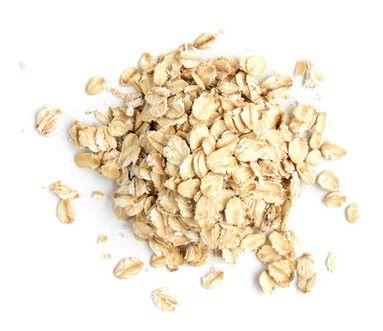

Symptoms of an oat allergy in dogs can include skin irritation, ear problems, hair loss, itching, and hives. Other symptoms can include digestive issues such as vomiting, diarrhea, and flatulence. Some dogs may also experience respiratory issues when exposed to oat proteins.
An oat allergy in dogs is caused by animmune reaction to certain proteins found in oats. These immune system reactions may cause the body to make antibodies to attack oat proteins, resulting in theallergy symptoms.
The diagnosis of an oat allergy in dogs typically involves an examination and discussion with a veterinarian. The vet may recommend doing skin or blood tests to determine if it is an oat allergy specifically. It is important for the vet to understand the dog’s overall health and any possible allergy triggers in order to make an accurate diagnosis.
An oat allergy in dogs can be a serious condition, especially if left untreated. Respiratory issues can be especially severe and can possibly lead to death if not properly treated. The mortality rate for untreated oat allergies in dogs is unknown. It is important to seek veterinary care if your dog is exhibiting any of the above symptoms.
The treatment of an oat allergy in dogs typically consists of minimizing exposure to the allergen. Proteins in the oats can trigger inflammation and other symptoms, so it is best to avoid oat-based treats and foods, and to instead substitute other, non-allergenic food sources. Additionally, anti-inflammatory medications may be prescribed by a veterinarian to help manage the symptoms.
The best way to prevent an oat allergy in dogs is to avoid feeding them any type of food that contains oats. Oats are a common allergen for dogs, so pet owners should read the label of any food they feed their pet to make sure it doesn’t contain oats or any other grain which could be an allergen. Grooming products used on dogs should also be checked for potential allergens, such as oat proteins that could be present in shampoos or conditioners. If an oat allergy is suspected, pet owners should contact a veterinarian for testing and treatment.
The oat allergy in dogs is not contagious and cannot be passed from one animal to another. It cannot affect humans, either.
Home remedies that can be used in the management of an oat allergy in dogs include switching to oat-free food and treats, bathing regularly with an oat-free shampoo, and using essential fatty acids to reduce skin irritations.
Although these home remedies may help alleviate the allergic symptoms of an oat allergy in dogs, they are not guaranteed solutions, and the best course of action if your dog is exhibiting allergy symptoms is to consult with your veterinarian.
Dog breeds that are vulnerable to oat allergy include Golden Retrievers, German Shepherds, Labrador Retrievers, Boxers, and Chihuahuas. These breeds tend to be more prone to allergies in general, so it is important to keep this in mind when considering what breed of dog to get. Other breeds may be likely to have an oat allergy as well, so it is important to look for signs of oat allergy such as excessive scratching, licking, or redness around the mouth and eyes.
Have you seen your dog exhibit any of these symptoms of an oat allergy? If so, it can be an overwhelming and stressful experience for both pet and owner alike. Even with proper preventive care and diet adherence, allergies can come at any time. Knowing how to manage this can be difficult. Being an advocate for your pet and keeping their comfort and health in mind are the ultimate goals. As you and your pup make it through this tough time, remember that the whole process is possible to overcome with the right care and attention. Wishing you both the best of luck on your journey.